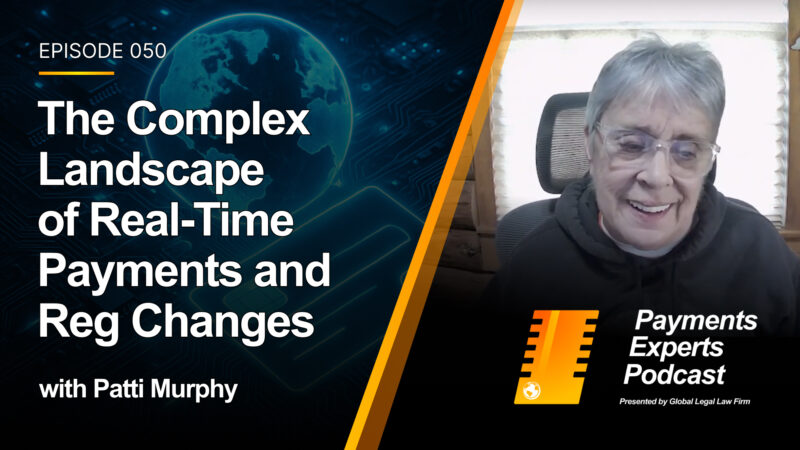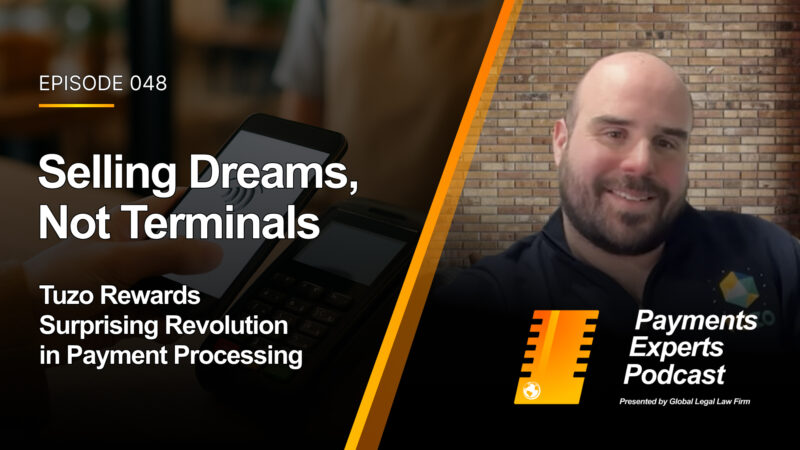PEP Episode 036 — Unlocking Bar Exam Success & Mastering Legal Skills: Strategies for Future Lawyers
- January 7, 2025
Podcast Description:
This episode shares vital insights for new lawyers about embracing feedback, effectively managing time, and prioritizing writing clarity. Listeners will learn practical strategies to enhance their legal careers and prepare for the bar exam with confidence.
• Importance of receiving feedback for professional growth
• Time management techniques crucial for legal tasks
• How to prioritize tasks effectively in a legal environment
• The significance of understanding your writing audience
• Balancing substance and form in legal documentation
• The benefits of documenting assignments to clarify tasks
• The value of creativity and adaptability in law practice
Natalia Spiridonova (00:00):
So the first thing that I advised to people who were watching me is how to choose between the preparation commercial courses. There are two of them, the them is and Barb. And they basically differ in the number of reviews that are provided by the professional lawyers. So one of the courses provide about 20 reviews and that another one, just five of them. And here, my advice is to choose the course that provides more of those reviews. And for me it’s about, uh, how helpful the feedback is and how necessary it is. And it aligns with what is happening on, on the job and your practical work because the feedback that you will receive from your supervisor first when you start working from the client is the crucial and essential part of your job. You cannot grow without receiving the feedback. From my experience, I know many people who are not comfortable with receiving feedback, and I was like that, uh, in the beginning of my career, uh, as well.
Natalia Spiridonova (01:11):
And for me, it was very difficult to hear any critique. And I think that it’s true for many lawyers because we are perfectionists, most of us, and because we want to do everything excellently and because we are ambitious and we think that we really believe that we can do everything excellently. But, uh, it’s not the case. And you really grow only when you make mistakes. And when you receive the feedback, again from your supervisors and from your clients, it’s still difficult to hear what you did wrong, but it’s really helpful. So my advice for both preparation for bar exam or for your legal work is to hear attentively what others tell you about your mistakes, because it’s very good when you are being praised or when somebody tells you that you are doing great, but it’s not of help for you. So don’t be scared of mistakes and just follow the feedback.
Natalia Spiridonova (02:20):
Uh, another thing that I really think, uh, that, uh, that lawyers and the beginners, uh, beginning lawyers, uh, shell consider is, uh, time management. First thing, you really need to, to start as early as possible with whatever task you receive from the supervisor. And same when you prepare for the bar exam or any task, uh, it can be very challenging because you need to upload some new information in your brain. Start processing that. And it’s about the openness. Uh, it’s easier to just give what you already have in your brain, and it’s more difficult to process something new, to understand the new, uh, information and to process that. So with every task, the earlier you start, the earlier your brain will start working on it. Uh, another thing which is time related is the, uh, prioritizing. I believe that it’s a lifelong journey and, uh, we learn how to rightly prioritize during the whole life and during all our legal career years.
Natalia Spiridonova (03:35):
Uh, for me, it still can be challenging because I, uh, like multitasking and that’s how my brain works. But I also understand that the better and more qualitative work product I can give, uh, when I am focused on one task. And that’s why you really need to be in contact with your supervisor, and you really need to ask every day, uh, if what, what is the priority? Because in the legal job, uh, the priority scan, uh, very quickly change. The same goes to the bar exam. And again, I believe that for JD students, for American law student, it’s not a big, such a big deal as for foreign students because, uh, they already have a lot of information based on their three year, uh, law school, uh, experience. Um, but still, I believe that it is useful. Uh, I believe that in preparation for the bar exam, you need to prioritize the writing tasks because it is the most difficult, most challenging part.
Natalia Spiridonova (04:47):
And in writing, it applies both for the preparation, for the bar exam and for the legal work. You need to be very attentive and mindful about what you write. First, you need to ask yourself to whom you are writing, who is the person to whom you are addressing your piece of writing. The next question is what you are writing. So what’s the content and why, why you are writing. What’s, what’s the purpose you want to achieve with your writing? I’m trying to ask those three questions. To whom? What and why? What’s the reason why, what the goal? I won’t go to with this piece of writing, with every piece of writing I’m doing, uh, whether it’s an email or a short document or anything. I really try to do that. And I believe that it’s the key for a successful, uh, way successful legal career.
Natalia Spiridonova (05:49):
Uh, because you have to, um, you have to communicate with ma many peoples, uh, like clients, your supervisors, your colleagues, uh, judges, detectives, police officers, and so on. And you really need to understand what’s your audience and in what form the information you need to convey. I would say that I was, uh, taught this, but in my previous legal, I practiced my previous legal jobs, but mostly during my American law school and during the pre preparation for the California Bar exam. And I really appreciate this advice because it’s very applicable to my current job. I, again, I really try to ask those questions every time I try to, uh, write something. And of course, it takes some time to adjust to the people you are working with because they are new to me. And I started, uh, working in global legal law firm not a long time ago, and I’m still adjusting and trying to understand what my, uh, supervisors want from me and try to make the writing I’m providing in that form they expect.
Natalia Spiridonova (07:09):
So, again, about the time management thing, sometimes you need to prioritize the form of the document, how it looks like, whether all formal formalities are complied with or not. But sometimes the most important thing is the substance of the document. It’s not about typos or it’s not about, the document can look not in very accurate way. You always need to keep it accurate and in a good, uh, form, but still, sometimes you have to pay, prioritize the substance because sometimes it is more important to receive some kind of document than not to receive it at all. And you just do not have the time to make it perfect. I just notice, uh, by myself that sometimes for me, it’s very difficult to send out something, even if I understand it’s urgent until I, I believe that it’s perfect, like, uh, in, in my po in my opinion.
Natalia Spiridonova (08:08):
So, uh, that’s also, uh, a, a thing to work on and it, it, it’s very helpful on the bar exam. You really do not make something perfect. You just need, uh, to have a good work product. Just not an excellent one, not the perfect one, just something that answers the call of the question. Um, another thing that also helped me a lot, uh, but during the California bar exam preparation and on my, um, current work in global legal law firm, uh, is the habit to put everything in writing. It really helps me. Uh, when I was preparing for the California Bar exam, I created my own outline for each class, each course I listen the videos on for all 13 subjects. Uh, despite the fact that the commercial course I was studied with provided the already prepared outlines for me, it’s about, um, again, the way of memorization.
Natalia Spiridonova (09:16):
You not only hear the information, but you also type it down and you apply. You, you, you make extra effort with your brain to formulate the thought. And you, you own this thought in this process. You start, you, you make this thought your own, not not just reproducing your thought, uh, someone else’s thought, but you makes this thought your own. And it, it also helps me during my work. So whatever the assignment is, when I hear the assignment from the supervisor, from the partner, I am trying to write it down. Uh, because sometimes, and not sometimes I would say it’s quite often when I read, read the, the assignment, I find that I, my first impression, my first understanding one was not that precise, uh, that is, uh, required to make the assignment, uh, in the right way. So I really like to put something in writing and then reread it and re re understand the, uh, the call of the question.
Natalia Spiridonova (10:29):
And I believe that this provides me, uh, with the sources to make, uh, the job, uh, better than I would do without that. Another thing that is all also very helpful, I would say in my work, and I also taught that, uh, during the California Bar exam preparation, uh, is the consecutive, um, double-sided process of creating a document and of document review. Uh, I already said that I’m from transactional team and I’m mostly, uh, prepare agreements, review and rely on them. And, uh, I wanted to address, I really believe that it can be helpful how I mostly do that. I, again, try to understand what, what’s the purpose, why I’m doing that, because it differs depending on the goal of the client and on the particular assignment, particular goals that need to be achieved. Then I read the document, then I again read the goal, and I, this is the consecutive process.
Natalia Spiridonova (11:35):
I am going back and forth between the goal. I want to achieve the purpose and the document. And, uh, I adjust the document for this based on the purpose. And then I re understand and reconceptualize the purpose of the assignment based on the content of the document. And it’s going back and forth really many times, and it really helps me. It, um, I I believe that, uh, for transactional wear, it’s really helpful technique, but also for, uh, preparation for the bar exam and for litigation, that also, uh, can be very helpful. And, uh, another, another one, maybe last thing I wanted to address, uh, concerns the attentiveness. I believe that being attentive is, uh, one of the key, um, characteristics of the lawyer. And one of the key things that helps to be a good lawyer, because when you are paying attention to something and you are really being attentive to details, it very, very often, it’s one half of success.
Natalia Spiridonova (12:52):
If you are really attentive to details, you can find, or you can often find the solution to even the legal problem, because we know this division between facts and like normative versus factual things. And you know that you cannot infer any rule, any normative, uh, rule or reality from the factual one. And from this standpoint, we think that if we will focus on the facts, it’ll never help us to be good in rules. And that’s what lawyers do. But somehow it doesn’t work like that. And when you’re very attentive to details into the facts, you in, you will infer very important things that will help you to solve the problem on this normative level of the rules. So I really, uh, advise to be attentive to, uh, learn, to be attentive, uh, to reread documents and to remind yourself to do that. And I really believe that it’s key for legal practice.
Natalia Spiridonova (14:02):
Hello, my name is Natalia Spva. I’m associate attorney at Global Legal Law Firm. I came from Russia and as a fellow of, uh, Russian, uh, legal Law Foundation. And I finished the McGeorge Law School. It was one year program. After that, I took the California Bar exam and I passed it from the first try. I really appreciate how inclusive the global legal law firm is because it’s a great opportunity for foreign lawyers to perceive their legal careers and to practice in common law. Really appreciate my colleagues and how friendly the atmosphere in the firm is. And it’s a great bunch of things that I can learn, and I really see many opportunities for myself to become a better lawyer here.
Natalia Spiridonova (14:55):
The last thing that I wanted, uh, to address that helped me in my preparation for the California Bar Exam and keeps help me helping me in my legal job is, uh, the creativity and openness to the new things. What do I mean? On the bar exam, uh, in my, the very beginning of my preparation, I heard the, the following advice, if you do not remember the rule, just make, make it up. Just create it. Just just write something that resembles the rule. You cannot, uh, recall. And it happened with me. Uh, by the way, during the California Bar exam, I had a rather challenging fact pattern on professional responsibility. And, um, the call of the question asked me to address the problem, both according to federal rules of professional responsibility and the California rules. I did remember the California rules, but I did not remember the federal rules.
Natalia Spiridonova (16:00):
I do not remember the <laugh> exact rule I’m talking about. Uh, if I remember correctly, probably it related to the communication between the lawyer and the opposing party, whether the lawyer can communicate with, uh, the opposing party directly or only with the lawyer. And another step was whe whether the lawyer can ask his or her client to communicate directly with the opposing party and to convey some information, ask some questions, uh, this way whether it will be sur circumvention of the rule of prohibition that, uh, the lawyer cannot communicate directly with opposing party or not. And I did not remember the federal rule, and I just <laugh> made it up and really helped me. I am not saying that you should not memorize and try to know and learn all the applicable rules, but it’s very helpful and it can save you sometimes only both on the exam during your legal career.
Natalia Spiridonova (17:05):
I believe that it can be helpful for litigation guys, for those who work in litigation, but it mostly, but it also can, um, help in such areas as, for example, payment processing networks. When there is not a lot of regulation, not a lot of statutes that would provide the strict black letter rules or jurisprudence. And you really need to be very creative. So I believe that, uh, despite the fact that we are lawyers, you need to be strict and follow the rules. Know them. Sometimes we need to be creative and open to something new and to be more flexible. Thank you for listening to this episode of the Payments Experts Podcast, a podcast of global legal law firm. Visit us online today at globallegallawfirm.com.
Recommended Podcasts
-

PEP Episode 050 — ATMs to AI: The Complex Landscape of Real-Time Payments and Reg Changes with Patti Murphy
Introduction From ATMs so novel they didn't even have a name to AI-powered payment...
Read More -

PEP Episode 049 — Dual Pricing Revolution: How Tech is Changing the Game | Conversation With Paul Hadfield
Introduction Paul Hadfield shares his journey from college dropout to successful payment processor, emphasizing...
Read More -

PEP Episode 048 — Selling Dreams Not Terminals: Tuzo Rewards Surprising Revolution in Payment Processing
Introduction Jeff and Hersh Moskowitz share how their payment processing journey led to the...
Read More